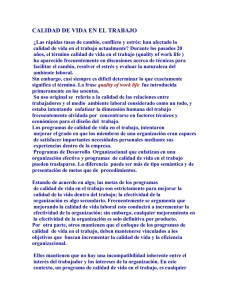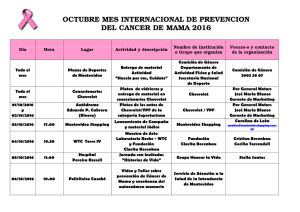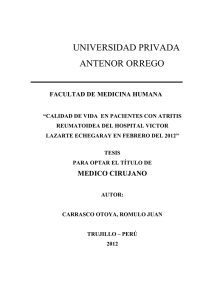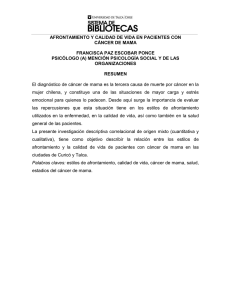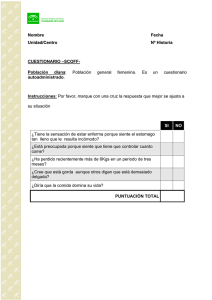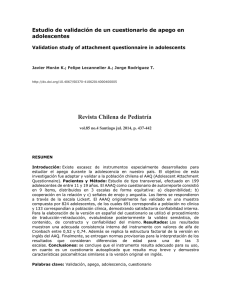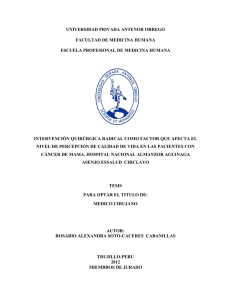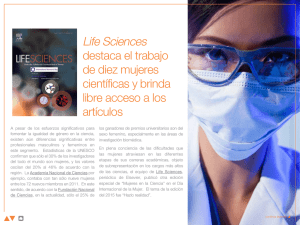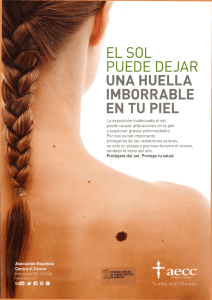evaluacion del cuestionario de calidad de vida eortc qlq c
Anuncio
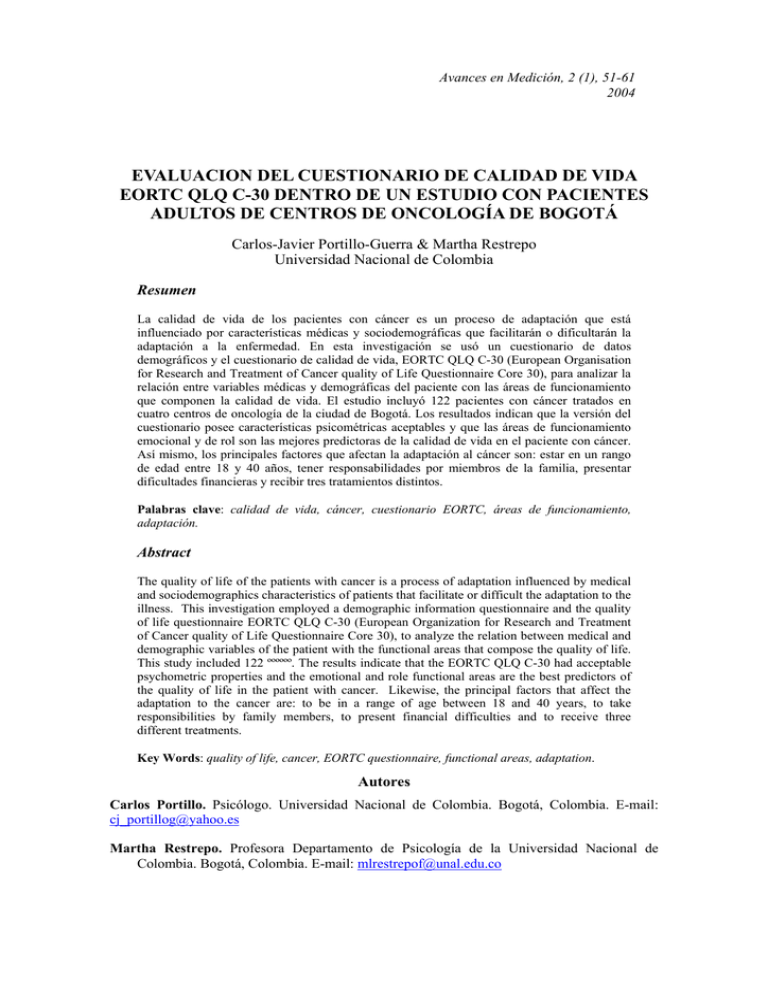
Avances en Medición, 2 (1), 51-61 2004 EVALUACION DEL CUESTIONARIO DE CALIDAD DE VIDA EORTC QLQ C-30 DENTRO DE UN ESTUDIO CON PACIENTES ADULTOS DE CENTROS DE ONCOLOGÍA DE BOGOTÁ Carlos-Javier Portillo-Guerra & Martha Restrepo Universidad Nacional de Colombia Resumen La calidad de vida de los pacientes con cáncer es un proceso de adaptación que está influenciado por características médicas y sociodemográficas que facilitarán o dificultarán la adaptación a la enfermedad. En esta investigación se usó un cuestionario de datos demográficos y el cuestionario de calidad de vida, EORTC QLQ C-30 (European Organisation for Research and Treatment of Cancer quality of Life Questionnaire Core 30), para analizar la relación entre variables médicas y demográficas del paciente con las áreas de funcionamiento que componen la calidad de vida. El estudio incluyó 122 pacientes con cáncer tratados en cuatro centros de oncología de la ciudad de Bogotá. Los resultados indican que la versión del cuestionario posee características psicométricas aceptables y que las áreas de funcionamiento emocional y de rol son las mejores predictoras de la calidad de vida en el paciente con cáncer. Así mismo, los principales factores que afectan la adaptación al cáncer son: estar en un rango de edad entre 18 y 40 años, tener responsabilidades por miembros de la familia, presentar dificultades financieras y recibir tres tratamientos distintos. Palabras clave: calidad de vida, cáncer, cuestionario EORTC, áreas de funcionamiento, adaptación. Abstract The quality of life of the patients with cancer is a process of adaptation influenced by medical and sociodemographics characteristics of patients that facilitate or difficult the adaptation to the illness. This investigation employed a demographic information questionnaire and the quality of life questionnaire EORTC QLQ C-30 (European Organization for Research and Treatment of Cancer quality of Life Questionnaire Core 30), to analyze the relation between medical and demographic variables of the patient with the functional areas that compose the quality of life. This study included 122 ºººººº. The results indicate that the EORTC QLQ C-30 had acceptable psychometric properties and the emotional and role functional areas are the best predictors of the quality of life in the patient with cancer. Likewise, the principal factors that affect the adaptation to the cancer are: to be in a range of age between 18 and 40 years, to take responsibilities by family members, to present financial difficulties and to receive three different treatments. Key Words: quality of life, cancer, EORTC questionnaire, functional areas, adaptation. Autores Carlos Portillo. Psicólogo. Universidad Nacional de Colombia. Bogotá, Colombia. E-mail: cj_portillog@yahoo.es Martha Restrepo. Profesora Departamento de Psicología de la Universidad Nacional de Colombia. Bogotá, Colombia. E-mail: mlrestrepof@unal.edu.co
